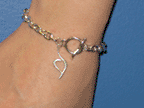The Former Half Ton Man
 Patrick Deuel used to weigh 1,027 pounds. He has lost over four hundred pounds, weighing at 530 pounds now. He was called the Half Ton Man and the media has been watching him ever since he went public. According to the following interview, he went public with his story to get the word out on obesity:
Patrick Deuel used to weigh 1,027 pounds. He has lost over four hundred pounds, weighing at 530 pounds now. He was called the Half Ton Man and the media has been watching him ever since he went public. According to the following interview, he went public with his story to get the word out on obesity:
He had a few things that he wanted the world to know about obesity:
“First, to the insurance companies, I would like to say that weight in excess of 100 lbs plus overweight is NOT COSMETIC, as they tried to tell me for the 42 years I was so overweight.†They told him for years that his problem was cosmetic and not life threatening. He had to get to 1,027 pounds before he could get treatment.
“Not all weight problems are just some fat guy or gal overeating either. Genetics play a great big part of weight problems.†I do agree that genetics can play a big part in weight problems. I also like to believe that I have some control over my weight. When I eat healthy and limit my portions, I lose weight. My problem has always been with bingeing.
“The second point is the medical profession’s treatment of morbidly obese people. They are greatly ignored by the bulk of general practitioners and specialists other than bariatric experts and surgeons.†This is true. Doctors seem to give up easily on patients that are morbidly obese. I have seen it happen with my own eyes, but is it because they believe the patients have given up on themselves? I don’t know.
“The last message is about transportation for the morbidly obese.†He had to wait for a special truck to move him to the hospital because there are very few medical vehicles that can support humans outside the normal range.
There but for the grace of God go [I].
– John Bradford, Encyclopedia of Word and Phrase Origins
Via: The Food Museum Blog – Celery & Ciggies
Google News Search – Patrick Deuel
 Buy Walking Videos
Buy Walking Videos Eating Disorders are a hot topic again. This one confuses me, though.
Eating Disorders are a hot topic again. This one confuses me, though.